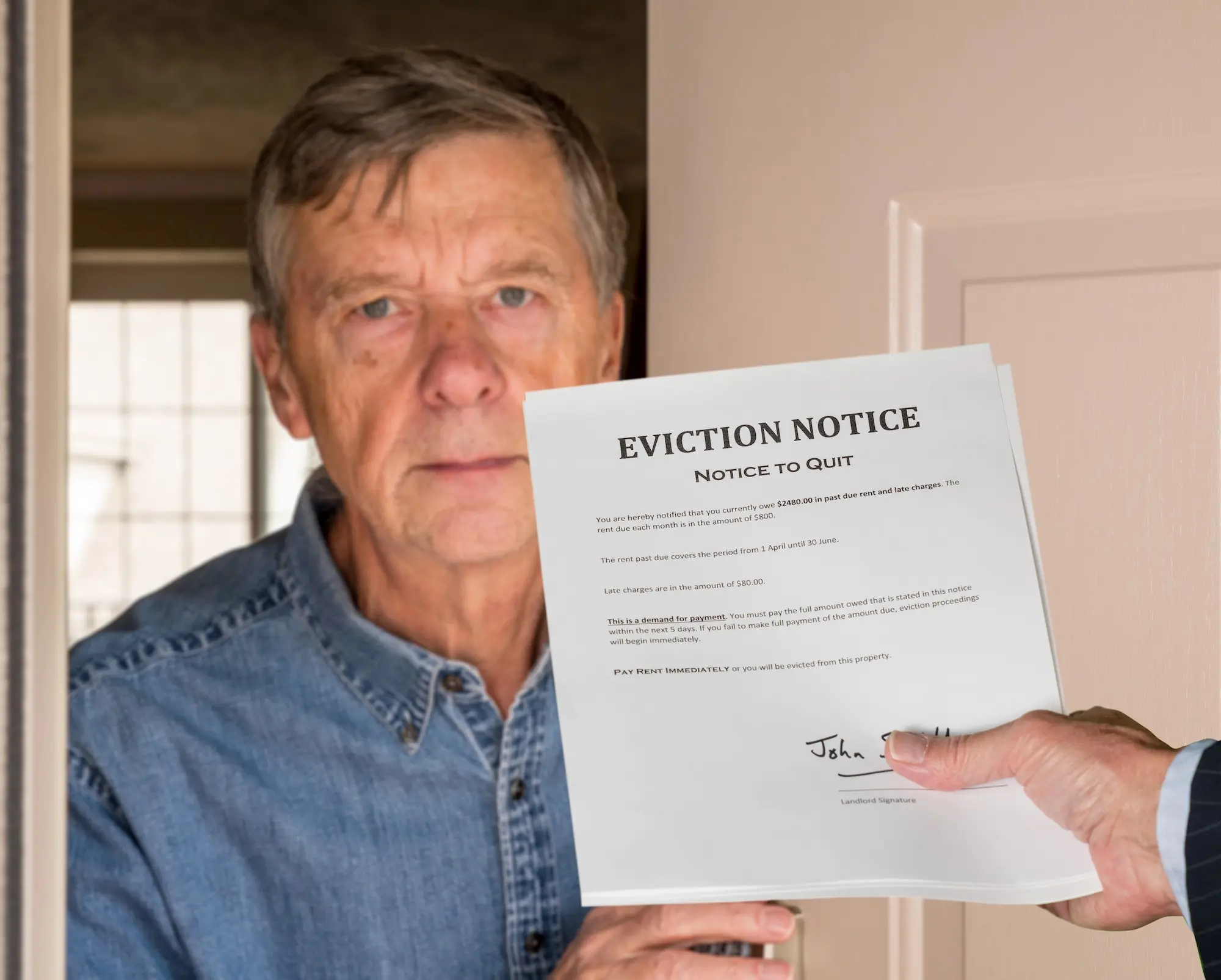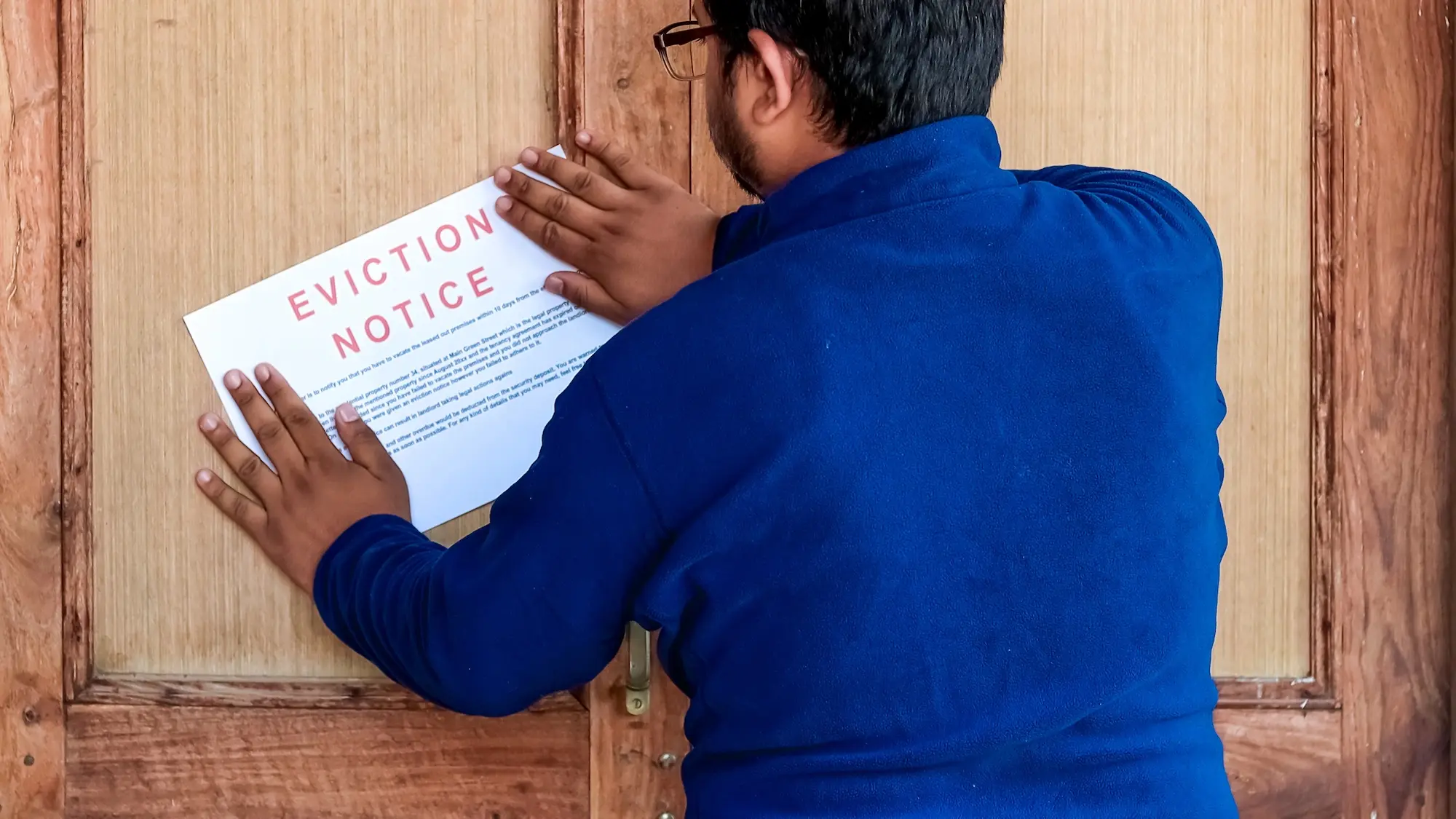You just found a court Notice of Eviction on your door. It's serious. Your home is at immediate risk, and if you do nothing, the court can order you to vacate on short notice, leaving you homeless and with an eviction record. The clock is already ticking, and failing to act almost always guarantees losing the case. Here's how to stop the spiral, regain control, and safeguard your future.
Key Takeaways
- Understand the significance of the eviction notice deadline and its implications for your rights.
- Ignoring the notice or delaying your response may result in an automatic judgment against you and limit your options.
- Immediate partial payment, negotiating with your landlord, or seeking legal aid can significantly improve your chances of avoiding eviction.
- If you receive a court summons, follow the proper procedure to formally respond and prepare to present your case at any hearing.
- Document everything, protect your records, and prepare for your next steps, whether you decide to stay or move.
Scrutinize Your Eviction Notice
The moment you receive an eviction notice, time is of the essence because they typically only give you a specific timeframe, often just 3-7 calendar days, to respond or remedy the situation. Missing this deadline usually means you forfeit your right to defend yourself in court, leading to an automatic eviction order.
First, carefully examine the notice to understand its demands and timeline.
- Confirm the exact deadline: Count the days meticulously and mark this date prominently on your calendar or phone.
- Identify the notice type: Is it a "pay or quit" notice for unpaid rent or a "cure or quit" for other lease violations? Understanding this dictates your next steps. If it's about rent, note the precise amount owed.
- Verify all details: Check that your name, address, and stated reasons are accurate. While minor errors might not void the notice, they can be important if your case goes to court. Immediately take a clear photo or scan of the notice.
- Understand local nuances: Eviction laws differ significantly by state and city. Some areas mandate more extended notice periods or offer mediation. While this guide provides general steps, quickly consult a local tenant's rights group or hotline to learn specific rules applicable to you.
Pro tip: The deadline isn't flexible. If you miss it, the court can rule against you by default.
Settle Dues or Negotiate Terms
Your immediate financial actions can be pivotal if you receive an eviction notice due to unpaid rent. Even if you can't pay the full amount, taking prompt steps can sometimes halt or delay the eviction process.
Here's how you can approach this critical stage:
- Pay what you can immediately: Gather available funds by borrowing, doing a quick job, or selling non-essentials. Pay the owed rent and associated fees immediately, ensuring you get a receipt. If you can only make a partial payment, request a new deadline or a pause in the eviction proceedings.
- Propose a payment plan: Contact your landlord or their attorney right away. Propose a structured payment plan, like paying half the overdue amount now and the rest in two to three months. Explain how you'll make these payments and get any agreement in writing. Most landlords prefer a reliable plan over the cost and hassle of finding a new tenant.
- Document every interaction: Keep detailed records of all communications and transactions. Save emails, texts, payment receipts, and signed agreements. This documentation proves your efforts to resolve the situation if your case goes to court.
Pro tip: Landlords care about certainty. A clear, written plan shows you're taking responsibility and gives them a reason to pause legal action.
Connect with Legal Aid and Essential Resources
Facing eviction alone can be daunting, but you don't have to. Getting legal advice and utilizing available resources can significantly improve your odds. About 90% of landlords have legal representation in eviction cases, compared to only about 10% of tenants. This disparity highlights why seeking your own counsel is so important.
Here's how to build your support network:
- Seek a tenant lawyer or advocate: Legal representation significantly improves your chances. Search for legal aid offices in your area by looking up "tenant rights" or "legal aid eviction" along with your city or state. Many offer free or reduced-cost consultations for eviction cases.
- Explore rental assistance programs: Don't overlook the possibility of external help. Immediately contact your state or city's emergency rental assistance program. Resources like RentAssistance or dialing 2-1-1 can help direct you to available aid programs in your area.
- Engage with housing counselors: HUD-approved housing counseling agencies offer no-cost guidance on managing eviction, improving credit, and budgeting. They can also assist in negotiating with your landlord or identifying alternative housing.
- Educate yourself on your rights: It's illegal for a landlord to change your locks, remove your possessions, or cut off utilities without a formal court order. Understanding these rights protects you from unlawful "self-help" eviction tactics.
Pro tip: Call 2-1-1 for assistance. It could buy you time, unlock emergency rent relief, and potentially stop the eviction.
Navigating the Court Process
If your eviction notice includes a court summons, you must participate promptly in the legal process. Ignoring court requirements may result in a default judgment against you and automatic eviction.
Follow these essential steps for court proceedings:
- File your "Answer" promptly: A court summons sets a short deadline, often just five days, to file an "Answer." Review the summons and court rules, then submit your Answer online (if available) or in person at the courthouse. This step is crucial to protect your rights.
- Attend all scheduled hearings: Be present and on time for court. Bring copies of your eviction notice, lease, payment receipts, relevant photos, and other evidence. Dress appropriately and address the court respectfully. If you can't attend due to an emergency, contact the court clerk to request a continuance, but use this option as a last resort.
- Organize and present evidence clearly: Organize your documents for easy reference and be ready to explain them to the judge. Include receipts for paid rent or, if applicable, dated photos and copies of repair requests for unresolved issues.
- Explore dismissal or settlement options: Showing your efforts to resolve the issue, such as paying rent or seeking assistance, can help prevent an eviction record. Communicate your cooperation firmly. If the landlord seeks an immediate removal order, request a "stand-still" agreement to gain more time to vacate.
Pro tip: Missing a court deadline is game over. File your response early, show up ready, stay professional, and let your paperwork do the talking.
Strategize Your Next Move and Protect Your Future
Whether you win your case, get more time, or have to move, what you do next can shape your housing future for years. This isn't just about surviving the eviction. It's about protecting your record, finances, and ability to rent again. Start preparing now, not after the judgment.
Consider these actions as you look ahead:
- Negotiate a departure if necessary. If you need to move, negotiate your exit terms with your landlord. Some may agree to a "cash for keys" deal, letting you leave without an eviction record in exchange for your security deposit. Always get these agreements in writing and ensure the eviction case is formally dismissed.
- Organize your belongings and relocation: Start packing essential items early, focusing on important documents (IDs, lease, legal papers), medications, clothing, and irreplaceable belongings. Take photos or videos of the apartment's condition for your security deposit discussion. Search for new housing quietly through personal networks and rental marketplaces.
- Monitor your tenant and credit records: Check public court records after the eviction case ends to confirm the outcome. If dismissed or settled, ensure it's accurately reflected. Eviction judgments can stay on tenant screening and credit report for years, so obtain copies to verify accuracy and dispute errors.
- Approach new housing applications thoughtfully: When applying for rentals, be ready to discuss your housing history. If you've had an eviction, be honest about it and explain how you've resolved any issues. Having positive references from landlords or proof of stable income can help.
Pro tip: A clean exit and a clear record can mean the difference between getting your next lease or being denied for years.
Conclusion
An eviction notice isn't the end. It's the start of a fast-moving process, and what you do in the next 72 hours can protect your home, credit, and future. Know your rights and critical timelines. Take proactive steps like reviewing the notice, exploring payment options, and seeking legal aid to navigate this challenging time confidently. Focus on clear communication and detailed record-keeping. You have the power to make informed choices that can help protect your housing and future.










